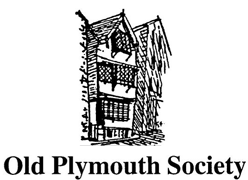by Simon Cannon
Published August 2012
(This article first appeared in the Spirit, the Parish and Community News for Woolwell, Glenholt, Belliver, Roborough and Bickleigh, Summer 2005 and is reproduced with the author’s kind per-mission.)
“A soldier will fight long and hard for a bit of coloured ribbon” so said Napoleon Bonaparte to Captain Frederick Maitland on board HMS Bellerophon. What places do you associate with Napoleon? Paris, of course, Elba, St Helena. But what about PLYMOUTH?
A painting in the Plymouth City Museum, “Napoleon on Board HMS Bellerophon in Plymouth Sound” by Jules Girardet, sparked my interest in Napoleon. I had not realised that Plymouth plays a small, but significant, part in the story of Napoleon, one of history’s most vivid and notorious characters. In the painting he stands alone at the stern, a tiny figure yet immediately recognizable. I was fascinated by the tumultuous crowd of boats depicted, all car-rying sightseers eager to catch a glimpse of the Emperor. What an impact he must have made on our city.
After defeat at the Battle of Waterloo Na-poleon was forced to abdicate.
He asked the British Government for pro-tection, and so was taken away on HMS Bellepheron. His destination was Plymouth Sound, where he was to be held until his future was determined. He arrived in Ply-mouth on 27th July 1815.
Trewman’s Exeter Flying Post reported on 3rd August: “There were on Plymouth Sound from 500 to 1000 boats of all de-scriptions, filled with spectators.” Napoleon was “very well large or heavy; his leg and thigh muscular and remarkably handsome.”
A letter from a Naval Officer to his uncle dated 11th August 1815 provides a fascinat-ing insight into the excitement occasioned by Napoleon. The officer says: “The day after he arrived here one of our Colonels borrowed the General’s boat and I was glad to seize the opportunity of taking Emily to see this wonder of the age. When we ar-rived near the ship we saw Bonaparte walking backwards and forwards in the cabin in conversation with General Bertrand. Out boat (which was a very handsome one and filled with Ladies and Officers) having attracted his attention, he came forward and looked at us occasionally with an opera glass, for the space of five minutes. He was dressed in a green coat with a red collar and cuffs and gold epaulettes and he wore a Star. After staying good naturedly long enough to satisfy the curiosity of the ladies, he sat down to a writing table and we saw no more of him. You will have seen by the papers what an extraordinary sensation was created here by Bonaparte’s presence.”
The Plymouth Dock reported: “On Sunday, we regret to say, a large proportion of spectators, not only took off their hats, but cheered him; apparently with a view of soothing his fallen fortunes, and treating him with respect and consideration. Our correspondent, who was alongside the Bellerophon on Sunday last, says that the sympathy in his favour was astonishing, that he heard no cheering, but that the hats of the men, and the hand-kerchiefs of the ladies, were waving in every direction. This is a spice of anticipated history. The living Socrates was odious, even to his own fellow citizens, but when dead, his bitterest enemies canonized him. Napoleon was odious only to his country’s enemies. Those very enemies have already evinced more spontaneous sympathy for him than they ever did for any one of their own princes of the house of Brunswick. Our grandchildren will be hardly able to discover the character of the Prince Regent, in the blaze of historical splendour that will surround the character of Boneparte.”
The civil authorities were somewhat alarmed by the unexpected but generous treatment accorded to Napoleon in Plymouth, and so a decision was quickly made as to his futures. Accordingly, Bellerophon left Plymouth bound for Torbay. On 7th August 1815 Napoleon transferred to HMS Northumberland and left our shores to start his voyage into exile on St Helena.
Our Naval Officer, whose name is unfortunately not known, continues his letter, providing a colourful insight into the Plymouth of his time. “We continue in the same lodgings and pass our time very comfortable and peaceably receiving much attention from the Gentlemen and Ladies about us. The markets which had risen a little, in consequence of so many ships being here will now fall again necessaries of life in general are thirty percent cheaper here than to the eastward which may perhaps be accounted for by the immense quantities of fish which are constantly brought in I wish we were near enough, I could supply your table with fish at very little expense.”
He ends the letter: “As I do not wish to spoil my work below, I must conclude and Emily will scold me for not leaving room for her to say with how much pleasure she joins in love and every good wish to my aunt and yourself,
Your sincerely affect. Nephew….”
Information in this article has been obtained from:
Plymouth City Museum and Art Gallery
www.nmmm.ac.uk
www.military-quotes.com
www.napoleonbonaparte.nl
